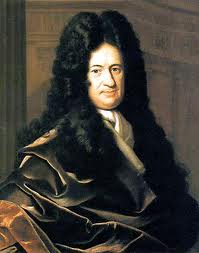-
(b.) -1646(d.)1716 June 21
Bio/Description
Leibniz occupies a prominent place in the history of mathematics and the history of philosophy. Leibniz developed the infinitesimal calculus independently of Isaac Newton, and Leibniz's mathematical notation has been widely used ever since it was published. Leibniz also developed the binary number system, which is at the foundation of virtually all digital computers.
In philosophy, Leibniz is mostly noted for his optimism, e.g. his conclusion that our Universe is, in a restricted sense, the best possible one that God could have created. Leibniz, along with Ren? Descartes and Baruch Spinoza, was one of the three great 17th Century advocates of rationalism. The work of Leibniz also anticipated modern logic and analytic philosophy, but his philosophy also looks back to the scholastic tradition, in which conclusions are produced by applying reason to first principles or a priori definitions rather than to empirical evidence. Leibniz also made major contributions to physics and technology, and anticipated notions that surfaced much later in biology, medicine, geology, probability theory, psychology, linguistics, and information science. Leibniz also wrote works on politics, law, ethics, theology, history, philosophy, and philology. Leibniz's contributions to this vast array of subjects were scattered in various learned journals, in tens of thousands of letters, and in unpublished manuscripts. As of 2010, there is no complete gathering of the writings of Leibniz.
-
Date of Birth:
1646 -
Date of Death:
1716 June 21 -
Gender:
Male -
Noted For:
Discovered the binary number system, anticipated Lagrangian interpolation, algorithmic information theory, and invented the calculus ratiocinator as well as a machine that could execute all four arithmetical operations, the Stepped Reckoner -
Category of Achievement:
-
More Info:


